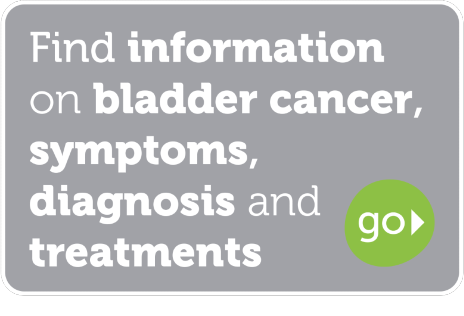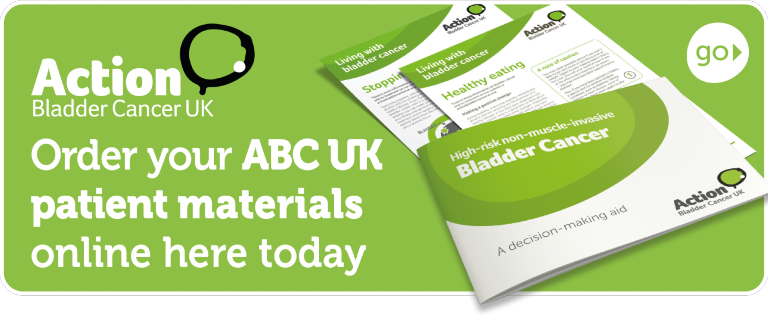Allen's story
We are very grateful to everyone who has shared their story with us on this website. We know that many people find reading the story of other patients very helpful when trying to make sense of their diagnosis or cancer journey. We also know that these stories can be very powerful in helping to raise awareness of bladder cancer and highlight the urgent need for new treatments, research and support for those with bladder cancer.
If you would like to tell your story please do get in touch with us by email at group@actionbladdercanceruk.org
We can arrange for one of our Patient Support Officers to get in touch to help you tell your story, if that would be helpful, and we also have a 'hints and tips' sheet to give you more ideas about what to write.
I am a survivor. Today, I am the Chair of the charity Action Bladder Cancer UK and I’m the patient representative on the Board of the National Institute for Health Research, Efficacy and Mechanism Evaluation programme which provides grant funding for clinical trials. I am also helping to run a number of clinical trials in Bladder Cancer.
In 2009 I was having trouble weeing. I passed some blood once, but I was about to have a life assurance medical for work (I trained as a rocket scientist before setting up and running a successful management consultancy business for 20 years). At the medical, I didn’t mention the blood as all was normal. So I just carried on. Then I bled again. And really was having trouble weeing – greater frequency and urgency, difficulty starting and stopping. My wife got me to see my GP. I explained that my dad had prostate problems around my age (I was 49). He said it was probably nothing. It didn’t go away, so I saw him again. He did a prostate test and explained that it was probably just me getting older. I went back to see him and the prostate was fine. But I wasn’t, so he referred me to a consultant urologist to reassure me. I still didn’t know what my GP thought I didn’t have, or what I might have.
A few weeks later I went for an ultrasound scan. I was then to go back for a flexible cystoscopy scan. The afternoon after my ultrasound, I got a phone call from my consultant’s office. Was I free to see him the following morning? Aye, aye, I thought. Yes, I was free. He was a nice man who sat me down and matter-of-factly explained that I had bladder cancer. It was clear from the ultrasound I didn’t need a cystoscopy. He reassured me that I would die with it, but not of it. What? I’d never heard of bladder cancer. I was given a leaflet by the excellent Cancer Nurse Specialist who very patiently answered all my questions, although I was still reeling from having heard the ‘C’ word. I had no idea that over 10,000 people (3/4 men) were diagnosed each year, that it recurred more than most cancers and that about 50% did not survive 5 years. I later found out that it is the 4th most prevalent cancer in men (7th overall) and the treatment and prognosis have hardly improved at all in 30 years. It is also one of the most expensive cancers to treat (because of the recurrence and the need for surveillance), costing the NHS £68m pa.
Did I or had I ever smoked or worked with chemicals such as dyes? I hadn’t, but I guess I was a passive smoker as a child. So, I was just ‘unlucky’.
I was also asked if I wanted to take part in a clinical trial called BOXIT which involved taking a high dose Non Specific Anti Inflammatory Drug (NSAID) for two years (or a placebo – the trial was double blinded) as this may reduce the number of recurrences and had few side effects. I did.
I was to have the tumour, or tumours, surgically removed – a Trans Urethral Resection of Bladder Tumour or TURBT, under general anaesthetic and a rigid cystoscope with a special ‘blue light’ which better illuminated the tumour growth. Would next week be OK? My expression obviously said it was not ideal. ‘Would I be able to go wing walking 2 days after surgery’, I asked. I explained that it was my 50th birthday treat and a big family gathering was arranged. The surgery was rescheduled for the week after – well done the NHS!
The dye for the blue light was introduced through a catheter. The first time a catheter is inserted (‘just relax’) is uncomfortable and weirdly gives the sensation that you’re going to wet yourself. So you react by clamping on to the catheter. You soon learn that this behaviour is counterproductive! I was wheeled down to theatre and the next thing I was waking up, dazed and confused and being told the procedure had been successful. Because of the number of tumours, I was given a dose of Mytomycin C after surgery, followed by 6, weekly, instillations as an outpatient. I was kept in overnight and the (much larger) catheter removed the following morning. ‘Ouch’ – I swear the balloon had not been deflated before removal. After much water and demonstrating that my bladder was functional again, I was discharged.
After the six MMC instillations (‘don’t wee for an hour and don’t splash’), I had my first check flexible cystoscopy, 3 months from the TURBT. I was told that the tumour was Ta G2 NMIBC.
At my third check, in 2011, some tumour was found and I had a second TURBT and the cycle repeated.
That was 5 years ago. I had 3 monthly checks for a year, 6 monthly checks for a year and then annual checks since. Sometimes, the cystoscope is linked to the TV monitor so I can see for myself. I really like this, but I guess it’s not for everyone.
Allen became Chair of Action Bladder Cancer UK in July 2015.
How we help you
Latest News / Events
Setting up a support group for your patients - Webinar for Nurses - Mon 18 Aug 2025 08/07/2025
This is a FREE ABC UK online Zoom session, which is being run in response to requests from urology and cancer nurses, on how to set up and run a successful patient support group. The session will be led by one of the ABC UK Patient Support team, together with two advanced nurse specialists...











